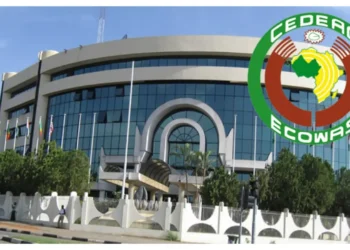The Federal Inland Revenue Service (FIRS) collected over N10.1 trillion tax revenue in 2022.
The Service made this known in its “FIRS 2022 Performance Update,” report signed by its Executive Chairman, Mr. Muhammad Nami and released, in Abuja, yesterday.
It said, “The FIRS, in the year 2022 collected a total of N10.1 trillion in both oil (N4.09 trillion) and non-oil (N5.96 trillion) revenues as against a target of N10.44 trillion.
“Companies Income Tax contributed N2.83 trillion; Value Added Tax N2.51 trillion; Electronic Money Transfer Levy N125.67 billion and Earmarked Taxes N353.69 billion.
“Non-oil taxes contributed 59% of the total collection in the year, while oil tax collection stood at 41% of total collection.”
The report indicated that it was the first time that the FIRS will cross the 10-trillion Naira mark in tax revenue collection.
It added that the N10.1 trillion was inclusive of the N146.27 billion which is the total value of certificates issued by the FIRS to private investors and NNPC for road infrastructure under the Road Infrastructure Development Refurbishment Investment Tax Credit Scheme created by Executive Order No. 007 of 2019.
The total sum also included tax waivers on account of various tax incentives granted under the respective laws, which amounted to N1.81 trillion.
The FIRS said that the feat was made possible the Nami-led management’s : administrative and operational restructuring; making the service customer-focused; creating a data-centric institution; and automation of administrative and operational processes.
It said, “The reforms introduced at different times from 2020 are gradually yielding fruits. By the close of 2022, the Service had fully restructured the administration of the Service for maximum efficiency and achieved internal cohesion such that all functional units are working in unison towards the achievement of set goals.
“As a result of conducive environment created for staff, officers of the Service are pulling their weight on the global stage with international recognitions and awards;
“The Service had also automated most of the administrative and operational processes. A major leap was the full deployment of the TaxPro Max for end-to-end administration of taxes in June 2021. The module for the automated TCC went live 1st January 2023 while taxpayers had already downloaded over 1,000 TCCs this year without having to visit FIRS office.”
The organisation said that it had operationalised its data mining and analysis system thereby allowing for data-backed taxpayer profiling.
In his remarks on the 2022 performance, Mr. Nami, said that it was made possible through “dogged implementation of strategic reforms over the past two years; a renewed commitment by officers of the Service, accompanied with a boosted morale; as well as the innovative deployment of technology for automation of both tax administration and operational processes.
“This collection was possible through collaboration with our stakeholders, from our colleagues at the Executive branch of government, to the members of the judiciary, to our brothers and sisters at the National Assembly, as well as the tax advisory committee, professional bodies, unions, and most crucially our taxpayers.”
Speaking on the outlook for 2023, Mr. Nami stated that the Service would build on the current reforms, achieve full automation and continue to establish a resilient Service that would continue to provide sustainable tax revenue to fund the government.
His words, “We intend to maintain, and even improve on the momentum in 2023,” he stated.
“We have peaked, but this is not certainly our peak. In fact, my hope is that this would be the least sum the Service would ever collect going forward.
“Our goal is to identify more areas where we can improve on in the delivery and efficiency of our collection; and plug loopholes, while deploying innovative reforms in data and artificial intelligence.
“Ultimately, we believe that the FIRS can shoulder the responsibility of providing revenue needed for the governments across the Federation to cater for the needs of the Nigerian people through taxes.
“This is feasible once we get the much-desired support from the three tiers and arms of government, as well as all stakeholders.”









